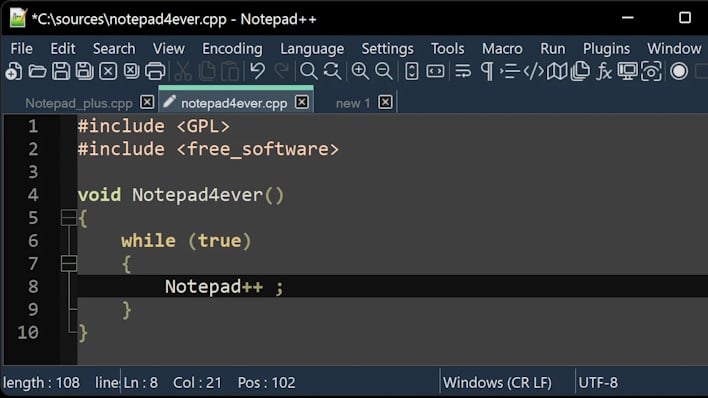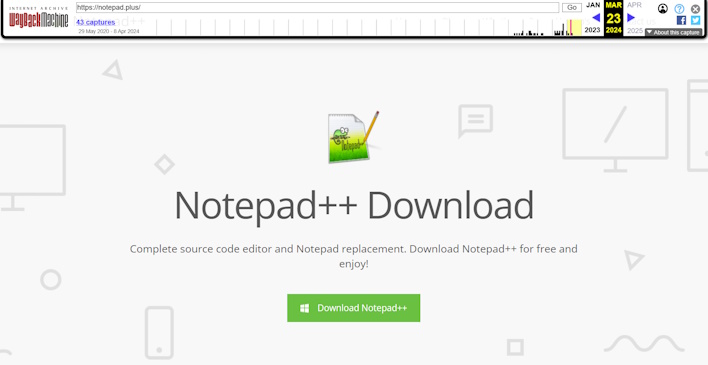Notepad++ Fans Prove Pivotal In Dismantling Parasite Website With Hidden Agenda

Earlier this month, the Notepad++ official website, owned by Don Ho, posted a blog post noting that he’d “received numerous complaints via email, social media, and forums regarding a website that poses a significant threat to our community.” The website, notepad[.]plus, was believed by some to be the legitimate Notepad++ website and was appearing in searches for Notepad++ directly below the real website.
Despite labels claiming it was an “unofficial fan website created for general information/educational purposes only,” Ho explained that this website had a “hidden agenda.” Before it went offline, it was purportedly riddled with malvertising, which tried to trick users into clicking the ads to generate revenue for the website owner. As such, Ho called on the community to report the website to get it taken down and “safeguard our community and maintain a secure online ecosystem.”
Since then, the website has seemingly disappeared from search engines and has gone offline entirely. Looking back at it through Wayback Machine, the concern might have been overblown, but we understand the sentiment from Notepad++, especially after recent events concerning open-source software like xz-utils. Ensuring that you are the primary provider of downloads and the top site in search engines is one way of ensuring security in a world where people randomly download software that might be trojanized. This sort of thing could end up with the developer's life being flipped upside down, which is something nobody wants.


